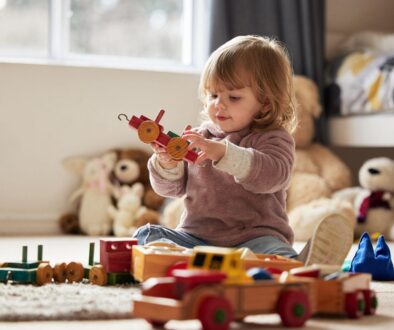How to Start a Daily Routine With Your Child

Starting a daily routine with your child can provide structure, stability, and a sense of security. Routines help children understand what to expect and create a more organized environment for their growth and development.
Here are some ways to help you establish a daily routine with your child:
- Set a Consistent Schedule– Children thrive on consistency, so try to establish a daily schedule with regular wake-up times, mealtimes, playtimes, and bedtime. Consistency helps your child’s body and mind adapt to a predictable routine.
- Involve Your Child– Depending on their age, involve your child in creating the routine. Ask for their input and preferences when setting specific times for activities. This involvement can make them feel more responsible and invested in following the routine
- Create a Visual Schedule– Use pictures or drawings to create a visual representation of the daily routine for young children or those who cannot read yet. This visual aid helps them understand the sequence of activities and what comes next.
- Start with Basic Activities– Begin the routine with essential activities like waking up, getting dressed, brushing teeth, and having breakfast. Keep it simple and gradually add more activities to the routine as your child becomes familiar with it.
- Incorporate Playtime and Learning– Incorporate playtime and learning activities into the routine. Designate specific times for structured play, outdoor play, and educational activities, like reading together or engaging in age-appropriate learning games.
- Establish Mealtime Rituals- Establish regular mealtimes and consider having some simple mealtime rituals, such as discussing the highlights of the day during dinner.
- Limit Screen Time– Be mindful of screen time and set specific times for watching TV or using electronic devices. Encourage other activities like creative play, reading, or physical play.
- Prioritize Wind-Down Time- Engage in calming activities such as reading a bedtime story, dimming lights, and maintaining a consistent bedtime routine to help your child relax and prepare for sleep.
- Be Flexible– While routines are important, be prepared to be flexible when necessary. Sometimes, unexpected events or special occasions may require adjustments to the routine.
- Lead by Example– Follow your own daily routine. Children often learn best through observation, so leading by example reinforces the importance of routines.
- Offer Praise and Encouragement– Positive reinforcement can motivate them to continue adhering to the schedule.
It may take some time for your child to adapt to the new routine, especially if it’s a significant change from their previous schedule. Stay patient, be consistent, and make adjustments as needed to find a routine that works best for both you and your child.





